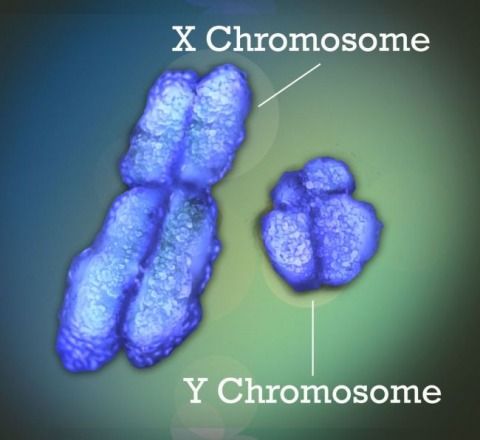
The Underground Thomist
Blog
Consonants and CultureThursday, 10-21-2021
It’s fascinating what one can pick up purely by accident from internet search results on unrelated topics. Recently, while looking up how certain consonants are formed in the mouth, I learned something about a genre of popular music. The item on my search results list was a snippet from a music review: “The only qualm encountered with the vocals is the lack of high screams to match the gutturals.” So I’ve learned something new. There was no need to open the item to read further. That was quite enough.
|
The Secret of Liberal Guilt?Monday, 10-18-2021
I don’t think we get it about liberal guilt -- and by the way, it isn’t just a liberal phenomenon, though liberals display it more conspicuously than most. As a society, we love to be condemned, so long as everyone knows that we join in the condemnation, everyone sees us beating our chests, and everyone knows that we want someone to do penance for us. We convince ourselves of complicity even in things we haven’t done. Why? Many say the guilt arises from a sense of undeserved affluence and good fortune. After all, isn’t the accusation “privilege”? Affluence may be a contributing factor, but I don’t think it explains liberal guilt all by itself. Perhaps such guilt has something to do with failure to use affluence for the good of others. On the other hand, those who are most afflicted by it do claim to use their affluence for the good of others. Don’t they support all the right causes? And don’t they let everyone know it? It seems to me that we are most likely to feel guilty about affluence if we are already disposed to feel guilty for other reasons. What other reasons? Clue: The people we are talking about don’t usually accept every accusation; they don’t feel guilty about everything whatsoever. They convict themselves of all charges except the ones that are most obviously true. Why? Because they deny the ones that are most obviously true. The nail driven into conscience seeks relief. We are a people who slaughter our babies and the babies of the poor, so we accuse ourselves of white supremacy instead.
|
Selective BewildermentThursday, 10-14-2021
“He who has ears to hear, let him hear.” Once upon a time, years ago, a churchgoing man in his thirties who had attended a discussion of a fairly straightforward passage in the Gospels told me afterward that he couldn’t understand it. I thought he meant that he was puzzled about some specific point. No, that wasn’t it. Though intelligent, educated, and generally able to understand and communicate in speech and written text, he could make no sense of the passage whatsoever -- not a paragraph, not a sentence, not a phrase. He told me afterward that he understood the words that it contained, but that they didn’t add up to any meaning. It wasn’t that he disagreed with the passage, but that he couldn’t grasp it. Not even the simplest explanation could reach him. It was as though the words were on one side of a grating, and he were trapped on the other. His inability to understand distressed him, though not so much as one might have expected. Thinking that another approach might be helpful, I tried several other ways to convey the passage’s meaning. No dice. The English of the translation remained Greek to him. He went on to tell me that he had the same problem whenever he tried reading the bible. Not when he read other books, mind you. Just this one. I learned months later – you may call this unrelated, but I am not so sure – that certain aspects of his life were coming apart at the seams. In retrospect, the only thing unusual about the man’s highly selective confusion concerning the things of God was that it was so extreme. Milder cases are as common as fleas. Perhaps a physician would suspect a brain lesion or other neurological problem. That sort of thing is far beyond my competence to identify, but in the years since talking with the man I’ve discovered that there can be other causes. Here’s one. It is most unlikely for our lives to fall into disorder because we can’t understand the simplest guidance. But no matter how intelligent we are, we often find the simplest guidance baffling because our lives are disordered, and this applies to divine guidance above all.
|
Misbegotten Males?Monday, 10-11-2021 |
How to Call a Bad King to AccountSaturday, 10-09-2021
The old system was that one could challenge criticize and punish the king's subordinate officials for their wrongdoing, even if they were following orders of the king, but that the person of the king was sacred. One got at a bad king through his helpers -- not lying, but allowing the appearance to persist that he did not really originate the wrongdoing but was surrounded by bad advisors. In the case of a king of weak judgment, or one surrounded by flatterers, it might even be true. This system had its points. It put pressure on the king to change his ways without destroying the regime. It also allows for the fact that in any political order – even a very good one -- the respect of the citizens for the law will be founded mostly on habit rather than reflection, something not to be carelessly imperiled. And a bad king is not just by that fact not the king. One might even argue that the system is still applicable. Even in a day of republics and pretended republics, there are domains of life – not all of them political -- in which authority either is, or should be, monarchical, and in which the king either cannot be, or should not be, removed. But perhaps I have said enough.
|
The Most Idiotic Statement by a Cardinal This MonthThursday, 10-07-2021
You would never know from his press coverage, but President Joe Biden is the most radically pro-abortion president who has ever held the office. That’s all right with Cardinal Peter Turkson, prefect of the Vatican’s dicastery of Integral Human Development. The Cardinal says the president should not be denied Holy Communion because "If you say somebody cannot receive Communion, you are basically doing a judgment that [he is] in a state of sin." The office of the bishop is to teach the Catholic faith. According to the Catholic faith, anyone who promotes abortion is committing a grave sin. Nor is the idea just some eccentricity of the Church, because the wrong of deliberately taking innocent human life is a fundamental of the natural moral law. So what is going on here? The Cardinal says that withholding Holy Communion from someone who promotes killing babies turns the sacrament into a “weapon.” But the proposal here is not to score political points, but to uphold the spiritual integrity of the sacrament. Let the political chips fall where they may; it isn’t the Church’s fault that mortal sin is part of the president’s platform. According to Canon 1398, anyone who “procures” abortion incurs excommunication latae sententiae, which means that he excommunicates himself by the very act of doing so. It would be strange if promoting it and boasting that one has done so didn’t count as procuring it. We are told that it would not be “pastoral” to chastise those who promote slaying innocents, but let’s think about that too. St. Peter, our first pastor, wrote “Be sober, be watchful. Your adversary the devil prowls around like a roaring lion, seeking someone to devour.” It is hardly sober and watchful to stand by and let one’s president and those influenced by his bad example be devoured. A shepherd does not reassure the sheep that there is no harm in the jaws of lions. He warns them and tries to rescue them. We are even told that it would be harsh and unkind to deny holy communion to the president. Actually it is unspeakably cruel not to deny it. As St. Paul explains in his first letter to the young church in Corinth, whoever receives the Body and Blood of Christ unworthily is in deadly peril. This isn’t candy we’re talking about. What then could this false shepherd have been thinking? In suggesting that we can’t condemn the promotion of abortion, was he saying that we can’t see the state of Biden’s heart? We can’t, but we can’t see anyone’s heart; invisibility of the heart does not imply invisibility of the sin. By an invisibility standard, no one should ever be barred from communion, and not even the Cardinal holds that position. Was he saying that abortion is not wrong? Probably not, although his words give that impression. Was he saying that abortion is not very wrong? He did say that Communion should be withheld only in “extreme cases,” but I don’t think he meant that abortion is not very wrong, but that licensing and encouraging abortion is not very wrong. Now we are getting close. Was he saying that the blood of the deed darkens only the hands of those who wield the knives, not those who procure them and sharpen them? Ah. I suspect it was something like that. We have heard this before. I didn’t rob the bank. I only kept the motor running while I was waiting for my friend. I didn’t cut the guy’s throat. I only held him still so that you could. I didn’t support the murder of the Jews. I only voted for the people who thought they should be murdered. There are many famous parallels. Stephen A. Douglas wasn’t pro-slavery. He was only pro-choice about slavery. Pontius Pilate didn’t command Jesus’ execution. He only gave official permission for it. As though one could authorize evil without sharing in the guilt of it. A good thing not only for the president to think about, but for the Cardinal. I entertain no hopes that this foolish, negligent, and morally confused shepherd will be removed from his office. On the contrary, he will probably be praised for helping make straight the path. Many would like the Abortion President himself to be invited to the Vatican. “For the time has come,” said St. Peter, “for judgment to begin with the household of God.” One trembles to think what the judgment may be for tolerating the promotion of bloodshed in mercy’s name.
|
High Tech Child AbandonmentMonday, 10-04-2021
Sperm donation is a perverse and inadvertent form of eugenics, one that selects for men who have the vanity to broadcast their germ plasm among women whom they neither know nor love, to produce children whom they will never help to nurture, in order to spread their genes through the population (and get paid for it). The practice mixes features of polygamy and child abandonment, all without the trouble of marrying anyone. If the selection effect is strong enough and goes on long enough, then over time we can expect an increase in the proportion of the male population that has whatever other predispositions men like this tend to have.
|






